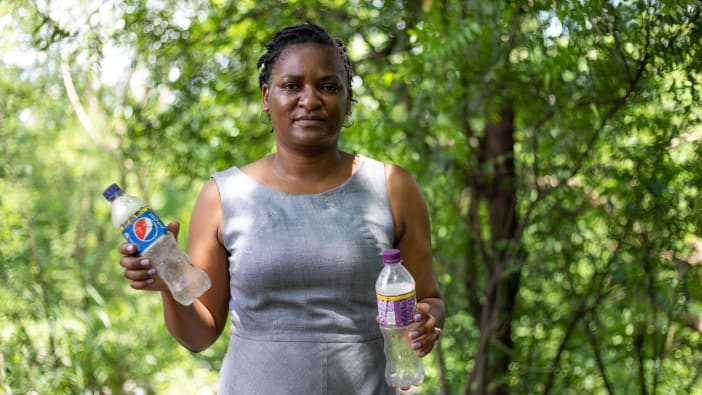Tearfund partner, Institute Solidare, began responding to this situation by conducting training with local pastors on preparedness and disaster response to the floods. In this training, the pastors wrote an emergency response plan and mapped out key community actors and aid distribution for that response.
Shortly after, the pastors had the opportunity to utilise their training when the Tejipió River flooded again. As the pastors enacted their emergency response plan, various community actors were mobilised and the aid was decentralised to more responsively meet the affected community’s needs. This was the first time such a response had been undertaken in Recife and it was a great success.
Afterward, Institute Solidare mapped local churches, schools, and community leaders in the area to expand community mobilisation in preventing and responding to floods. In response to the pastors’ actions, the local community gained more respect for their local churches. This helped to rally the churches and their communities to practice care for creation based on Christian theology.
Institute Solidare also began meeting with academic institutions and local government officials, including the City Council and Legislative Assembly of Recife and the state of Pernambuco’s Legislative Assembly and Environmental Council, to raise awareness of this issue with them.
Institute Solidare partnered with the Agency of Advertising for the Catholic University of Pernambuco, Department of Environmental Engineering of the Federal Rural University of Pernambuco, the Municipal Company of Urban Cleaning of the City of Recife, and the Environment Commission of the Brazilian Bar Association from Pernambuco. Together, they established historical precedence for the environmental care they were campaigning for, created a strong brand and communications for the campaign, and established the Tejipió River Basin Committee.
Alongside these meetings with academic institutions and government officials, Institute Solidare expanded its community training in churches and schools throughout the region to strengthen its capacity. They put their learning into practice when Institute Solidare organised a petition from these communities to their local governments with 13,000 signatures. Institute Solidare also organised a peaceful protest of 500 community members walking along the river to government buildings. This increased pressure on local authorities to respond to their community’s concerns regarding the Tejipió River flooding. Institute Solidare also brought together the communities they had trained for a conference to listen and learn from each other. Importantly, this conference also held special sessions for youth. Following on from this conference, local youth committees were formed to monitor the progress of cleaning and protecting the Tejipió River.
Institute Solidare’s work in these communities has laid the foundation for stronger relationships between churches and communities, and local governments and communities. Institute Solidare raised awareness of the environmental protection needs of the Tejipió River with local communities, churches, and government officials. They mobilised communities and churches to engage in the campaign for the river. Institute Solidare also convened space for these communities to influence their local government. Due to churches and communities engaging in cleaning the river and advocating for better protection of it by their local government, there was a great success a year later when the Tejipió River did not flood the region’s communities at its usual time after heavy seasonal rains. This campaign led to the local government taking the flooding of communities along the Tejipió River seriously and upholding their responsibility to take care of the environment and the people in their constituency. Institute Solidare continues to monitor the situation in this community and lobby the government to uphold their environmental accountability.
Josias Vieira, the leader of the We in Creation movement in Brazil, shared,
‘This indicates that the campaign operated by Instituto Solidare and community-based organizations, together with the community, needs to be continued through the Rio Tejipió Popular Forum. From the provocation of these actors, the government moves.’






